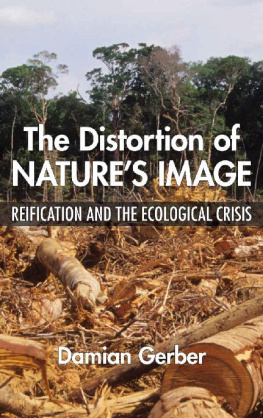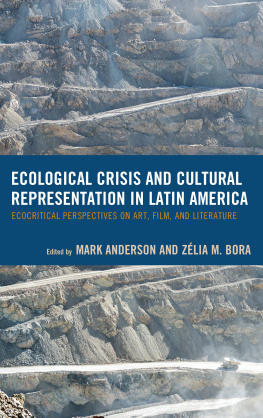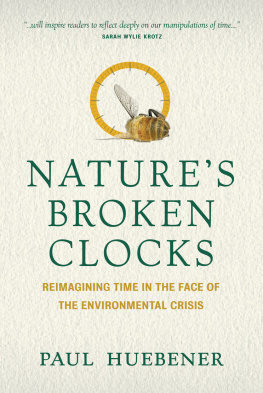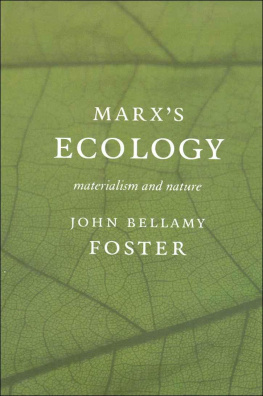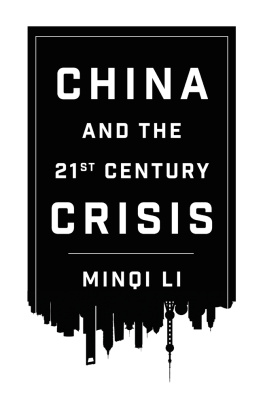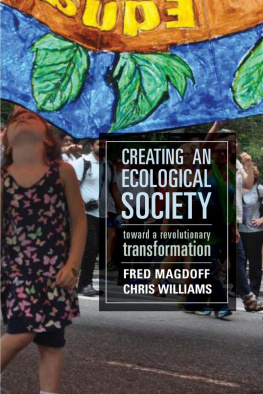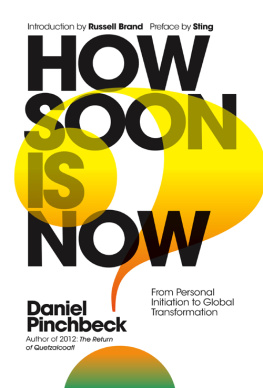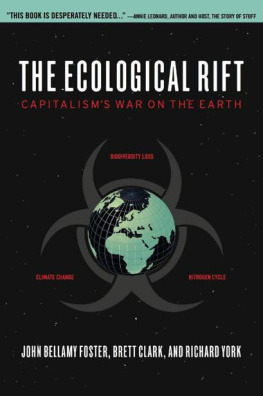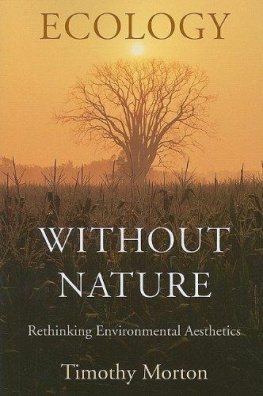The Distortion of Natures Image
SUNY series in New Political Science
Bradley J. Macdonald, editor
The Distortion of Natures Image
Reification and the Ecological Crisis
DAMIAN GERBER
Cover: iStock by Getty Images
Published by State University of New York Press, Albany
2019 State University of New York
All rights reserved
Printed in the United States of America
No part of this book may be used or reproduced in any manner whatsoever without written permission. No part of this book may be stored in a retrieval system or transmitted in any form or by any means including electronic, electrostatic, magnetic tape, mechanical, photocopying, recording, or otherwise without the prior permission in writing of the publisher.
For information, contact State University of New York Press, Albany, NY
www.sunypress.edu
Library of Congress Cataloging-in-Publication Data
Names: Gerber, Damian, 1988 author.
Title: The distortion of natures image : reification and the ecological crisis / Damian Gerber.
Description: Albany : State University of New York Press, 2019. | Series: SUNY series in new political science | Includes bibliographical references and index.
Identifiers: LCCN 2018021866 | ISBN 9781438473550 (hardcover : alk. paper) | ISBN 9781438473567 (ebook)
Subjects: LCSH: Global environmental changeSocial aspects. | Human ecology. | NatureEffect of human beings on. | Social ecology. | CapitalismEnvironmental aspects.
Classification: LCC GE149 .G465 2019 | DDC 304.2/8dc23
LC record available at https://lccn.loc.gov/2018021866
10 9 8 7 6 5 4 3 2 1
For Alexandra,
the one who opened my eyes to all the hope and beauty
in a biosphere worth preserving
Contents
Preface
This book attempts to explore, in the context of a critical history of Western nature philosophy, how the organization of our global market society, its institutions, and prevailing ideas are reflected in prevailing concepts of nature. It is concerned primarily with a critical examination of the nature that prevailed and remained influential throughout the liberal enlightenment tradition, through to three of the most extant avenues of radical philosophy (Marx, anarchism, and social ecology) and their images of nature, which have offered us the means to think in innovative ways about the increasingly tenuous relationship between human social organization and the ecology of the planet on whose surface we live. The American radical philosopher Murray Bookchin (19212006) is one of the chief contributors to the theory of social ecology, and, accordingly, a good part of this book concentrates on Bookchins attempt to construct a philosophy of dialectical naturalism. A dialectical naturalism, it is contended herein, is a way of looking critically at humanitys relationship to nature that resists reified thinking and expands our consciousness about new configurations of human-ecology relationships.
Before we turn to an outline of the book, it would be helpful to briefly explain the books relationship to some predominant trends in the contemporary environmental movement, and what it hopes to contribute to studies of Bookchin and social ecology, and environmental thought more generally.
The study of social ecology, and in particular the thought of Murray Bookchin, is an emerging field of influence in radical political ecology, and it is within the broader tradition of Bookchin studies that this work is situated. It is not the intention of this book to recapitulate all of the parameters of these debates, not least because in many respects they have become outmoded and aspects of them may be of dubious relevance to contemporary ecology movements. The introduction that follows this preface looks to some of the most pertinent contemporary scholarship in political ecology and concisely examines its relationship to the analysis of reified thinking and dialectical naturalism that follows. However, three recurring themes of this work are worth mentioning in brief here, for they are of great significance to the possibility of rethinking the contribution of social ecology to ecology movements. These are the relationship of Bookchins thought to Marxism, the argument that social ecology can be regarded as a continuation of the radical tradition of critical theory (in the sense of Max Horkheimers formative Traditional and Critical Theory essay) and the theoretical distinction between reformist and revolutionary perspectives, which often informs how ecology movements develop in practice.
As Bookchins idea of a dialectical naturalism took an increasingly distinctive shape, it defined itself both as an outgrowth of, and against, varied elements of Marxs thought. Nonetheless, this book seeks to illustrate that it is not so much in antithesis to Marxs thought itself, but in antithesis to certain trends in the subsequent development of Marxism (sometimes referred to by Bookchin, rather too vaguely, as Neo-Marxism), that the most vociferous aspects of the Bookchin critique can be understood to be directed.
A more complex question arises from the development of Frankfurt School critical theory, given both its stated aims of preventing the members of society from falling victim to reified thoughtan underlying motivation that, as this book will demonstrate, is also at the core of social ecologys dialectical concept of natureand the shared interest of several foundational members of the Frankfurt School in the notion of an ecological, rational society. The extent to which the Frankfurt School and social ecology align, in their attempted recovery of a dialectical naturalism from a common theoretical heritage in Marx, is apparent in one of Herbert Marcuses pivotal essays on the ecology movements of the 1970s:
Certainly, nature has always been an aspect (for a long time the only one) of labor. But it was also a dimension beyond labor, a symbol of beauty, of tranquility, of a non-repressive order. Thanks to these values, nature was the very negation of the market society, with its values of profit and utility.
Hence, regardless of Bookchins perhaps justified attempts to define his own anthropological research against Horkheimer and Adornos interpolation of reason and domination in historical terms, philosophical basis according to which both critically explore the concept of nature in light of its historical mediation. This is well beyond the scope of the present book. Nevertheless, this book does rely on several groundbreaking studies of the Frankfurt School in developing its account of the concept of nature in German Idealism and in Marx, and it is in this implicit form, at the very least, that the study of nature reification and the development of a dialectical naturalism can be seen to align.
The relationship between reformist and revolutionary thought has often been defined as a fractious one, including by Bookchin himself, who was at pains to characterize social ecology as an inherently revolutionary philosophy, as against attempts to green capitalism or accommodate ecological thinking within the ideological poverty of market society. , nor does it simplistically or tacitly endorse any attempt to hypostatize the divide between revolutionary and reformist ecology movements. Rather, its aim is a little more expansive than this: the book attempts to portray social ecologys goal as the provoking of critical thinking in ecology movements, spurring thought toward the consideration of radical alternatives to market society. The form that such movements can take is, of course, deeply varied, from revolutionary Kurdish communalism to single-issue environmental campaigns in the communities of Western metropolises. Rather than dismissing liberal environmentalism outright, it may behoove us to see the border between liberal and more radical environmental theory as porous. This seems to be precisely what Marcuse was gesturing toward in his essay on ecology movements:
Next page
